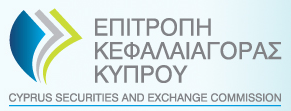
The Cyprus Securities and Exchange Commission (CySec) has just published a new document, called Practical guide to Markets in Financial Instruments Directive (‘MiFID II’) and Markets in Financial Instruments Regulation (‘MiFIR’), with the aim of providing the country's financial industry with an outline of the new European regulatory requirements. The report came out now despite recent reports that spot forex trading might be exempt from reporting until 2017.
MiFID has been in force since 2008 and is a cornerstone of the EU’s regulation of financial markets. It aims to improve the competitiveness and integration of EU financial markets by creating a single market for investment services and activities and ensuring harmonized protection for investors. MiFID is also what allows forex and binary options brokers to provide services throughout the European Union, being an internal market, on the basis of a Cyprus licence.
CySec explains to the industry in its guide that the financial crisis has exposed weaknesses in the functioning and in the transparency of financial markets. The evolution of financial markets has exposed the need to strengthen the framework for the regulation of markets in financial instruments, including over-the-counter (OTC), in order to reinforce confidence, address unregulated areas and ensure that supervisors are granted adequate powers to fulfill their tasks.
Therefore, on 12 June 2014, the European Parliament and the Council adopted MiFID II and MiFIR. This new legislative package seeks to make financial markets more efficient, resilient and transparent as well as address commitments made by the G20 on these topics. Both MiFID II and MiFIR entered into force on 3 July 2014.
Highlights
In its publication, CySec highlighted 11 main changes introduced with MiFID II and MiFIR. The seemingly most relevant to the forex industry are (excluding reporting):
- Corporate Governance and Organizational Requirements- A requirement to record telephone conversations or electronic communications is introduced. A prohibition of title transfer collateral arrangements with retail clients is added.
- Conduct of Business and Investor Protection Rules- Independent advice is clearly distinguished from non-independent advice and additional restrictions are imposed on the receipt of third-party Payments i.e. inducements by portfolio managers and providers of independent advice. There will be stricter control of the remuneration of staff advising or selling to clients in order to ensure that it complies with the obligation to act in the best interest of clients.
- Algorithmic Trading and High Frequency Trading- A requirement for all algorithmic traders to be properly regulated and to provide Liquidity when pursuing a market-making strategy is introduced. Investment firms which provide direct electronic access to a trading venue will be required to have in place systems and risk controls to prevent trading that may contribute to a disorderly market or involve market abuse. Persons dealing on own account and applying a high-frequency algorithmic trading technique fall within the scope and need to be authorized under MiFID.
- Commodity Derivatives- Positions limits will be applied on the size of a net position which a person can hold at all times in commodity derivatives traded on trading venues and economically equivalent OTC contracts.
- Product intervention- MiFIR gives EU and national regulators new powers to temporarily or permanently prohibit or restrict the marketing, distribution or sale of certain financial instruments and structured deposits, financial activities and practices in case of significant investor protection concern or a threat to financial stability or the orderly functioning and integrity of markets and subject to a number of legal conditions to be fulfilled.
- Third Country Regime- When offering services to retail or professional clients on request in the EU, member states may require that third country firms will have to establish a branch in each member state where they operate. Branches will be subject to authorization and supervision in the member state. When providing services to eligible counterparties or per se professional clients in the EU, third country firms will directly register with ESMA. The registration will be subject to the third country receiving a positive equivalence assessment from the European Commission. No EU branch is required and the EU passport will be available.


















